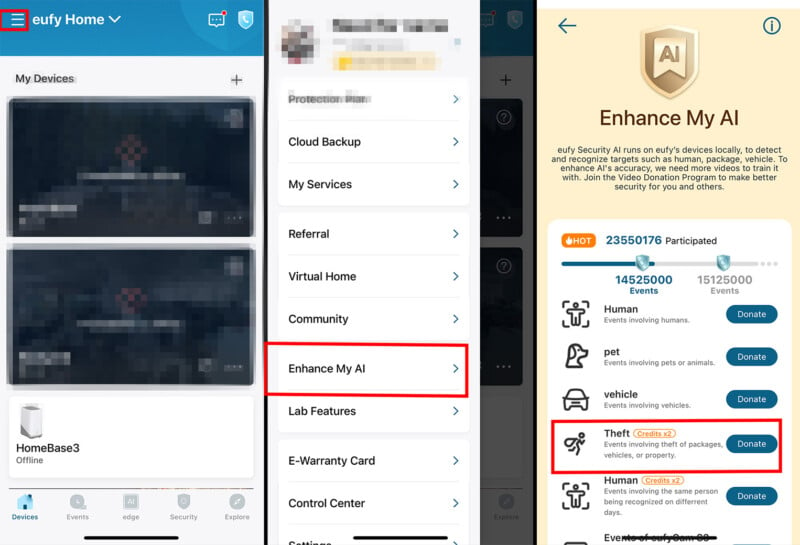Anker Paid Eufy Camera Users $2 Per Video to Train AI
![]()
Anker — the Chinese company that produces Eufy security cameras — offered users money in exchange for their videos of package and car thefts, whether real or staged, to train its AI systems.
Earlier this year, Eufy ran a promotion aimed at collecting 20,000 videos of package thefts and 20,000 videos showing people attempting to open car doors, according to a report by TechCrunch.
The company offered $2 per video to users who submitted such content, with the stated goal of improving its AI camera system’s ability to detect theft. For the campaign, Eufy said it did not matter whether the videos depicted genuine incidents or were staged by the users themselves.

“To ensure we have enough data, we are looking for videos of both real and staged events, to help train the AI what to be on the lookout for,” Eufy wrote on its website. “You can even create events by pretending to be a thief and donate those events. You can complete this quickly. Maybe one act can be captured by your two outdoor cameras simultaneously, making it efficient and easy. If you also stage a car door theft, you might earn $80.”
Eufy also emphasized that “the data collected from these staged events is used solely for training our AI algorithms and not for any other purposes.”
A community posting noted that Eufy limited submissions to a maximum of 10 videos per device for each activity, meaning users could earn up to $20 per device. The campaign ran from December 18, 2024, to February 25, 2025.
TechCrunch says its requests for comment to Eufy, including inquiries on participation numbers, total payments, video collection, and post-training deletion, received no response. However, according to comments on the campaign’s announcement page, more than 120 users said they participated in it.
Directly paying users for content to train AI still remains relatively uncommon. Eufy’s initiative illustrates that companies are willing to compensate customers for data they consider valuable for AI development. While the approach allows users to potentially gain financial benefit from their own content, TechCrunch says that there could potentially be security and privacy risks associated with such campaigns. The news outlet reports that Neon, a viral calling app that paid users for sharing recordings and transcripts of their calls, contained a security flaw that allowed access to other users’ data. The app went offline after being notified of the issue.
Image credits: All photos via Eufy/Anker.